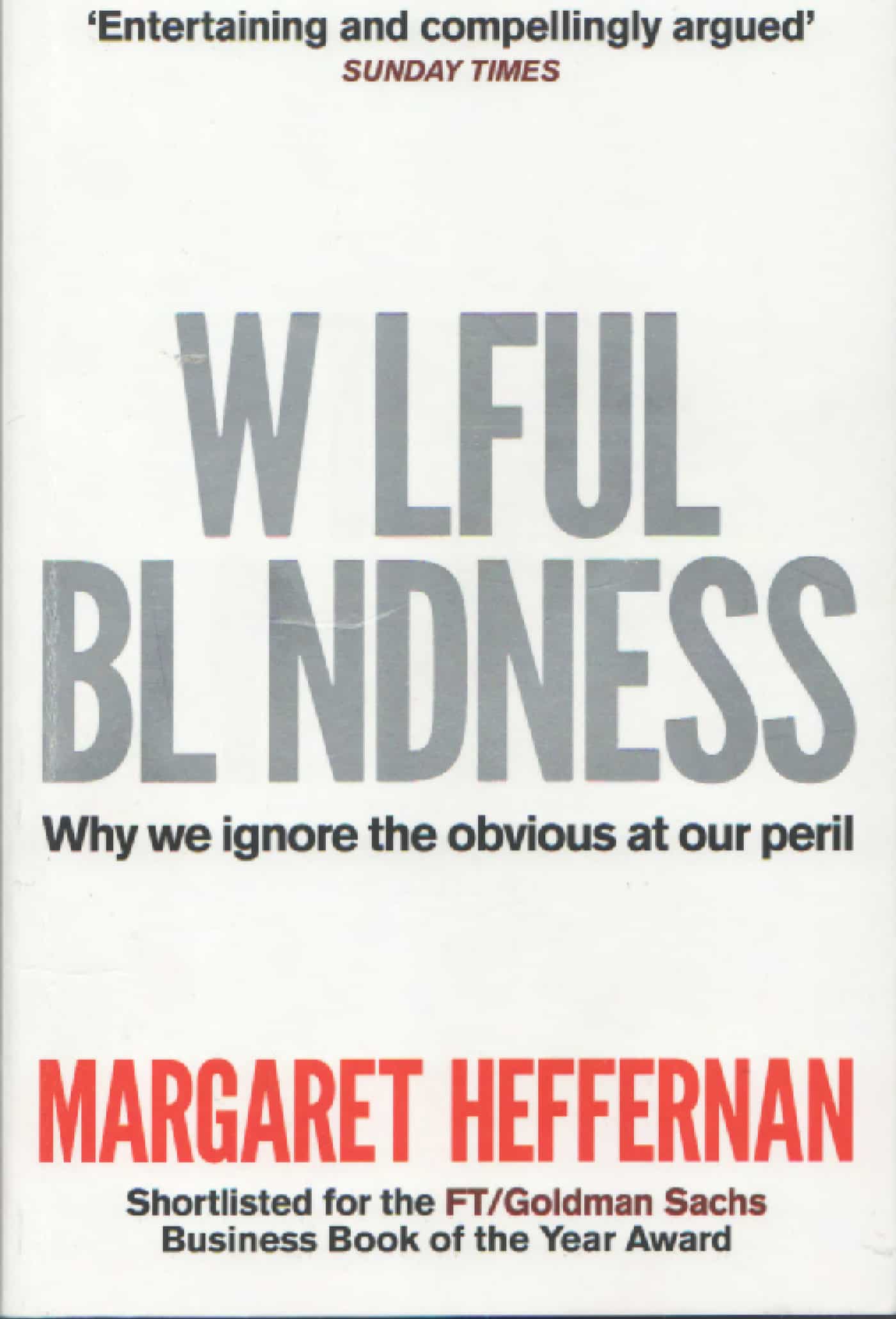Put your hand over your ears and start saying La La La La La La La. That is willful blindness (or, technically,deafness, but let’s not quibble).
 Margaret Heffernan, author of a new paperback edition of “Wilful Blindness – Why we ignore the obvious at our peril“, discovered wilful blindness while researching the trial of the Enron executives. Heffernan says that
Margaret Heffernan, author of a new paperback edition of “Wilful Blindness – Why we ignore the obvious at our peril“, discovered wilful blindness while researching the trial of the Enron executives. Heffernan says that
“Judge [Simeon] Lake was applying the legal principle of wilful blindness: you are responsible if you could have known, and should have known, something which instead you strove not to see.” (page 1)
Heffernan’s book is not simply a new book on business management. Heffernan acknowledges that wilful blindness is not limited to a workplace, person or management theory. She also says wilful blindness is not always a negative. It is this breadth of approach to the topic that increases the worthiness of her book.
The examples of wilful blindness include, amongst others:
- exposure to UV rays in the suntanning industry;
- fatigue in the Texas City oil refinery, video games creation, and in driver impairment and distraction; and
- the US housing crisis and other financial debacles.
Heffernan’s book should have a direct relevance to Australian safety professionals and executives in this period of increasing due diligence, corporate accountability, governance and regulatory compliance. Those Australians have already been digesting the term “mindfulness“, introduced into the Australian corporate vernacular by Professor Andrew Hopkins in the context of leadership based on earlier concepts of mindfulness. Heffernan provides a fresh perspective on many of the same touchpoints for organisational and cultural change. Hopkins and Heffernan seem to discussing similar organisational concepts but from different sections of the dictionary.
Heffernan’s writing style is very easy to read and she is not afraid to jump from business context to personal to societal to illustrate a point, although some reviewers wish for deeper analysis. This provides the book with a great readability as it both shows the interconnectedness of wilful blindness and the pervasiveness of the concept. Towards the end of the book she says:
“We make ourselves powerless when we choose not to know. But we give ourselves hope when we insist on looking.”
As Winter gets colder here in Australia, the reading armchair is the ideal place to read Wilful Blindness, a book that stimulates thought without thinking for you. The book also provides a good discussion starter for safety professionals.
